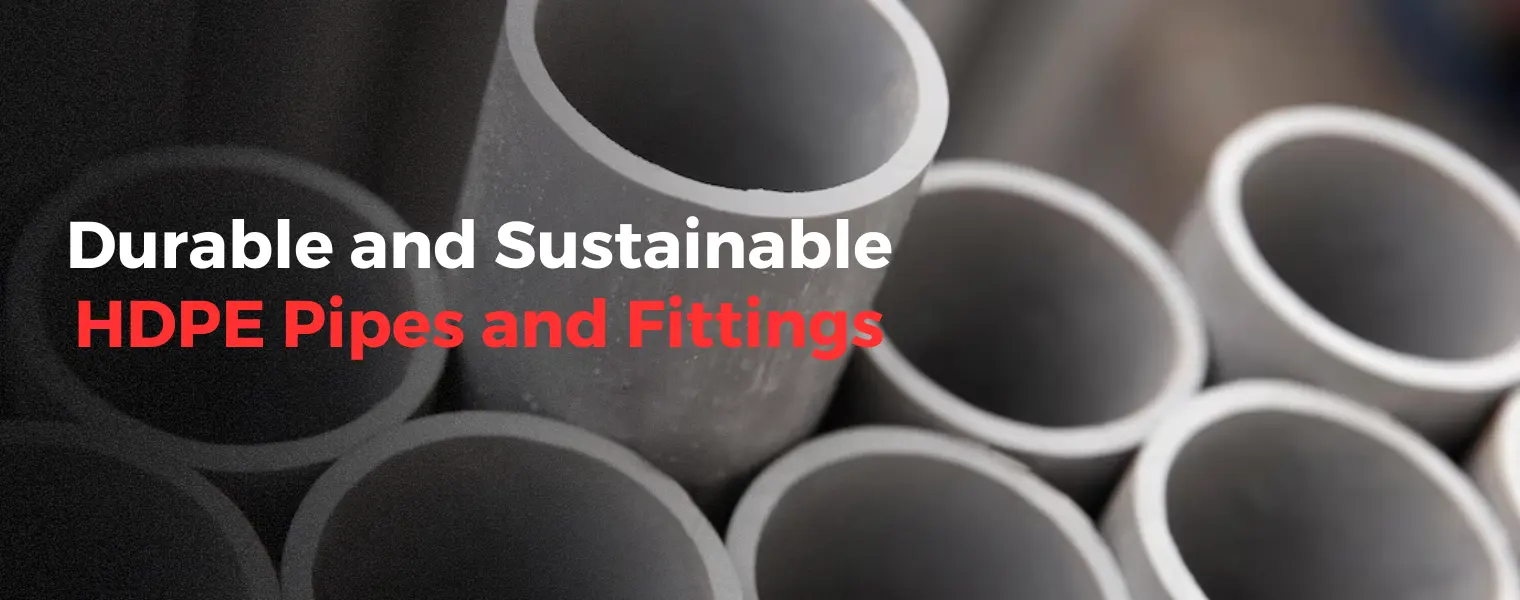
In today's world, where environmental sustainability and longevity are paramount, High-Density Polyethylene (HDPE) pipes and fittings have emerged as game-changers in the field of infrastructure. Renowned for their durability and eco-friendliness, HDPE pipes and fittings are revolutionizing industries ranging from water supply to construction. This blog will delve into the exceptional qualities that make HDPE pipes and fittings both durable and sustainable, highlighting their pivotal role in modern infrastructure.
One of HDPE's standout features is its remarkable resistance to corrosion. Unlike traditional metal pipes that may degrade over time due to exposure to moisture and chemicals, HDPE pipes remain structurally sound. This resistance ensures a longer service life, reducing the need for frequent replacements.
HDPE pipes exhibit impressive strength, allowing them to withstand high-pressure environments. Whether they are used for water transport, gas distribution, or industrial applications, HDPE pipes maintain their integrity even in demanding conditions.
Flexibility and Impact Resistance: HDPE is known for its flexibility and ability to absorb impacts without cracking or breaking. This resilience is especially valuable in situations where pipes may be subject to ground movement, temperature fluctuations, or heavy equipment.
HDPE piping systems typically employ heat fusion techniques for jointing, resulting in seamless connections that are highly resistant to leaks. This feature minimizes water loss, preventing costly disruptions and environmental concerns.
HDPE is fully recyclable, aligning perfectly with the principles of a circular economy. Old HDPE pipes and fittings can be collected, processed, and reused to create new products. This reduces waste and decreases the demand for virgin materials, promoting environmental sustainability.
The production of HDPE pipes requires less energy compared to alternatives such as metal pipes. Lower energy consumption translates into reduced carbon emissions, contributing to the fight against climate change.
HDPE is chemically inert, meaning it does not release harmful substances into conveyed fluids. This is especially crucial in applications where water quality and safety are paramount.
The durability of HDPE pipes translates into reduced maintenance requirements. This not only saves time and resources but also minimizes disruption to communities and ecosystems.
HDPE pipes and fittings epitomize the ideal blend of durability and sustainability. Their resistance to corrosion, strength under pressure, and recyclability make them invaluable assets to industries worldwide. As we progress toward a greener, more resilient future, HDPE pipes and fittings stand as pillars of innovation, ensuring our infrastructure remains both robust and environmentally responsible. These versatile solutions not only meet the needs of today but also pave the way for a sustainable and enduring legacy. Polyfab provides the best HDPE and Pipes and Fittings Contact us to know more.